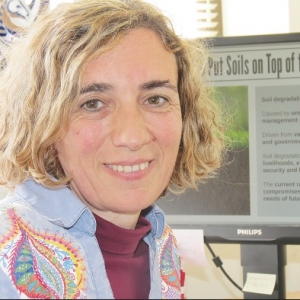Soil Scientists need to engage more with society and educate people about the importance of soil.
That’s the view of soil scientist Dr Marta Camps of Massey University. Camps is the New Zealand representative on a Food and Agricultural Organisation (FAO) technical panel helping to organise activities to mark World Soil Year in 2015.
One initiative by FAO worldwide is an awareness campaign about the everyday importance of soil to everyone on the planet.
“Many people now live in cities and are not connected with farms and where food comes from so we need to raise awareness of the importance of soils to food security,” she told Rural News.
“And also about the role soils have on eco systems services, for example in storing carbon, filtering nutrients and its role on hydrology. Soil has many implications for all of us.”
In New Zealand it is planned to appoint three young soil graduates as ‘soil ambassadors’. They will work part time and visit schools to talk about soil.
“We want to try to break the language problem soil scientists have. It has been a problem for many years because they talk in strange technical terms and we want to make soil science attractive. It is complex and this can scare people.”
Camps points out with rising populations and urban sprawl, the pressure on productive land is increasing. The amount of productive land available to each person is rapidly declining and FAO estimates that by 2050 a mere 0.1ha will be available. Urban sprawl in places like Auckland highlights the challenges of protecting productive land.
Camps is on an intergovernmental technical panel planning to finalise a document on the ‘status of soils’ worldwide.
At an international level there are many challenges to getting an agreement on how to manage soils. Cultural and economic differences are the obvious obstacles. It took three years of meetings to establish the global partnership on soils alone.



















